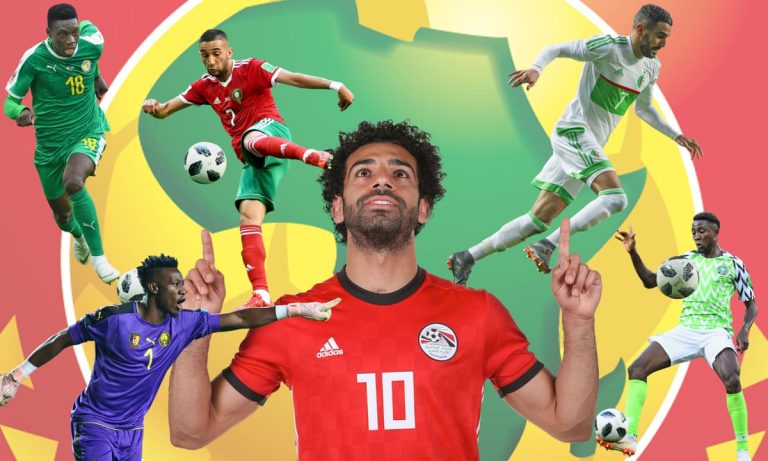Home » World Cup Expansion: How African Teams Could Benefit from FIFA’s Plan
World Cup Expansion: How African Teams Could Benefit from FIFA's Plan

FIFA President Gianni Infantino unveiled an ambitious project to hold the World Cup every two years. The goal of this initiative is to double revenue while improving worldwide inclusion. For African teams, this could mean expanded opportunities to shine on the international stage.
At the CAF Assembly in Addis Ababa, Infantino revealed nine to ten African nations will be competing in the 2026 World Cup. The plan supports FIFA’s wider goals to enhance global football representation and development.
The framework stresses the importance of developing young athletes and modernizing sports facilities. The increased number of slots allows African nations to focus on developing their talent while strengthening their competitive position. The continent’s football scene will experience a fundamental transformation for many years due to this change.
FIFA’s Bold Vision for a New World Cup Format
The most recent FIFA proposal plans to transform international football by increasing the frequency of the tournament. The ambitious plan spearheaded by Gianni Infantino strives to double financial returns while expanding worldwide participation. The strategy focuses on inclusivity by providing increased chances for nations to participate in international competition.
Revenue Growth and Global Inclusivity Objectives
Revenue growth represents the core focus of FIFA’s strategic direction. The organization plans to achieve substantial financial benefits by holding the tournament more often. The generated revenue will fund football development programs around the globe with an emphasis on underrepresented areas.
Global inclusivity is another key objective. The proposal seeks to increase the number of participating nations to provide more teams with opportunities to excel. The approach supports FIFA’s goal to establish football as a sport that reaches every corner of the world.
Feasibility Studies and Infrastructure Challenges
The vision demonstrates ambition but faces substantial obstacles. Current feasibility studies evaluate how viable it would be to increase the frequency of hosting the tournament. The big issue remains an overloaded fixture schedule, which threatens to overextend both players and leagues.
Infrastructure improvements are also critical. The host countries must allocate funds to build stadiums and create training facilities along with transportation networks. The tournament needs these upgrades to achieve successful and sustainable operations.
|
Key Aspect |
Details |
|
Revenue Growth |
Projected to double with increased tournament frequency |
|
Global Inclusivity |
More nations to participate, enhancing representation |
|
Feasibility Studies |
Ongoing assessments of logistical and financial viability |
|
Infrastructure |
Investments in stadiums, training facilities, and transportation |
Stakeholder support varies across regions. CAF, AFC, and Concacaf support the plan, but traditionalists in UEFA and Conmebol show their reservations. The proposal’s success depends on finding a balance between differing viewpoints. The evolving landscape will require innovative storytelling to engage audiences globally.
African teams World Cup expansion: Opportunities and Challenges
The changed tournament structure allows for increased global representation opportunities. Increased tournament slots enable nations throughout Africa to demonstrate their skills in high-level international competitions. The transformation provides enhanced visibility while supporting sustainable growth within football.
Enhanced Qualification Chances for African Nations
The revamped qualification process promises a brighter future for football development. Under the new CAF structure, 54 nations are organized into nine competitive groups. The new structure guarantees more teams can join and ensures equitable competition routes toward the tournament.
Morocco reaching the semi-finals for the first time in 2022 demonstrates African nations’ growing potential. Emerging talents will gain exposure through expanded opportunities that enable them to support their national programs. This phased process includes group stages and play-off rounds, ensuring a robust and competitive system.
Potential Impact on African Football Development
Increased participation in the tournament could transform the sport’s landscape. National governments must direct resources toward developing infrastructure and training centers as well as grassroots programs. Nurturing talent and improving competitiveness requires these essential upgrades.
Morocco’s Mohammed VI Football Academy served as a key element in their latest achievements. Other nations could use these projects as models for development. The continent can establish a lasting football system through its emphasis on youth development programs.
|
Key Aspect |
Details |
|
Qualification Process |
54 nations in nine competitive groups |
|
Infrastructure Investment |
Stadiums, training facilities, and grassroots programs |
|
Youth Development |
Focus on academies and talent nurturing |
|
Global Representation |
Increased slots for greater participation |
These changes not only boost visibility but also inspire the next generation of players. By leveraging these opportunities, African nations can redefine their role in international football.
Support from AFC, Concacaf, and African Federations
The AFC together with Concacaf and African federations, has expressed robust backing for the new tournament format. Proponents of the new format maintain that it creates greater competition chances for regions that previously lacked representation on the world stage. The AFC spokesperson stated that this development creates an opportunity for equal competition.
The expansion will result in more exposure and enhanced funding for football facilities within African federations. Morocco’s semi-final journey during the 2022 tournament demonstrates the latent capabilities of African nations. The assistance provided supports FIFA’s mission to promote worldwide inclusivity.
Opposition from UEFA and Conmebol: Preserving Tradition
On the other hand, UEFA and Conmebol have expressed concerns about the rapid changes. They argue that frequent tournaments could dilute the prestige of the event.
“We must protect the integrity of the sport,” stated a UEFA representative.
Traditionalists are concerned that the updated competition structure will create an overloaded fixture schedule, which could harm both player performance and fan interest. Organizers fear early stage matches will become uninteresting, which may lead to decreased viewer satisfaction.
Global football governance faces broader tensions as various perspectives clash. Wealthy backers demand modernization which presents the primary obstacle of maintaining a balance between heritage and advancement. The outcome of this debate will set the direction for international football’s future.
Looking Ahead: Shaping the Future Landscape of International Football
The plan to expand global tournaments promises to redefine football’s future. With more spot opportunities, emerging nations can showcase their talent. The transition promotes investment toward infrastructure and youth development, which serves as a foundation for sustained growth.
South Africa and Morocco have established themselves as major contenders in international football. These countries demonstrate strategic priorities through their bids to host significant events. These initiatives support FIFA’s aspiration to enhance inclusivity and representation in the sport.
The association will need member nations to work together as it progresses. Football remains a global unifying force through its dedication to both sustainable development initiatives and effective fan engagement strategies.
